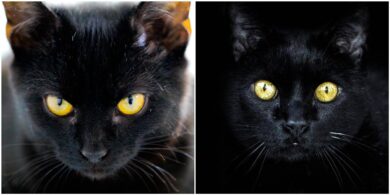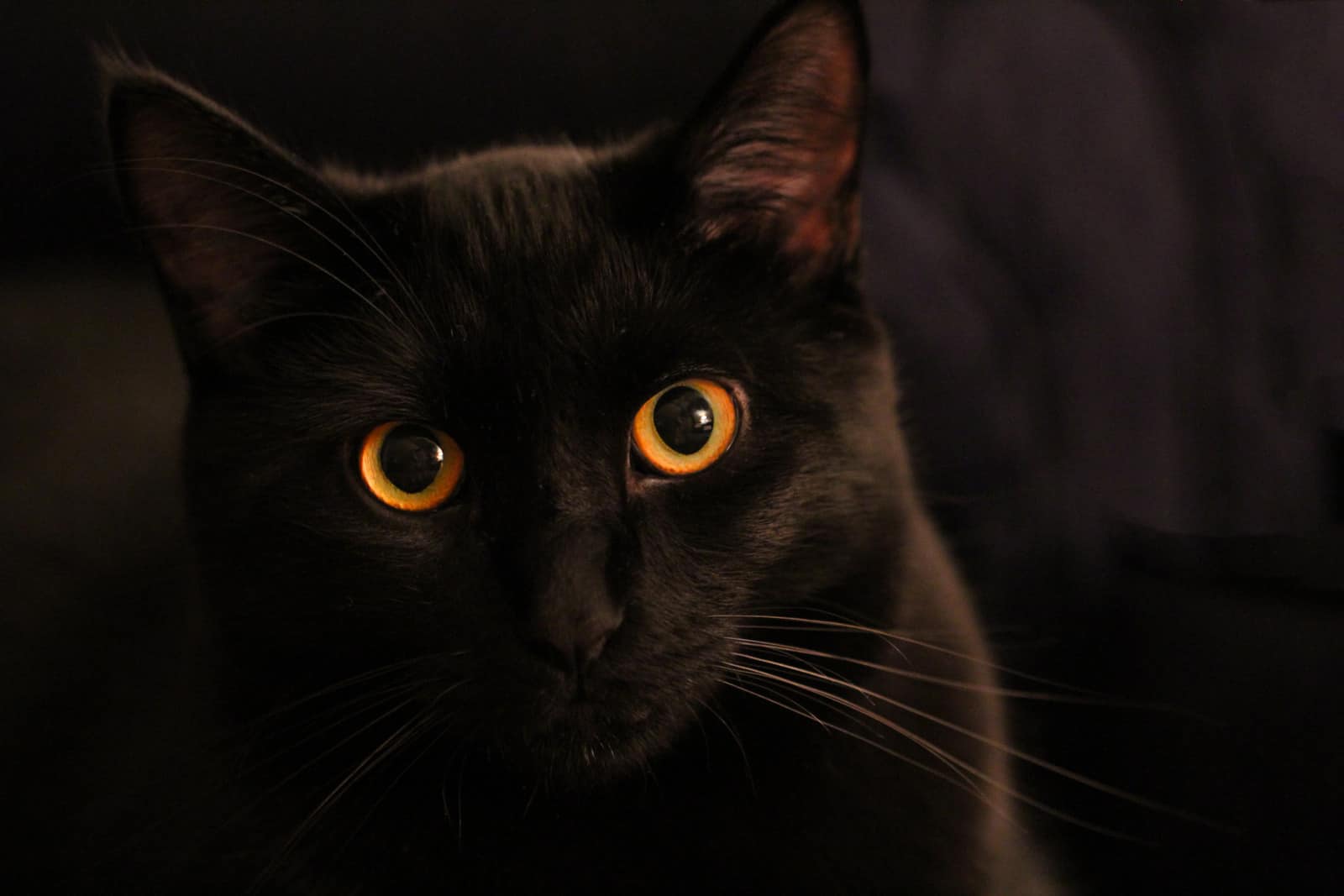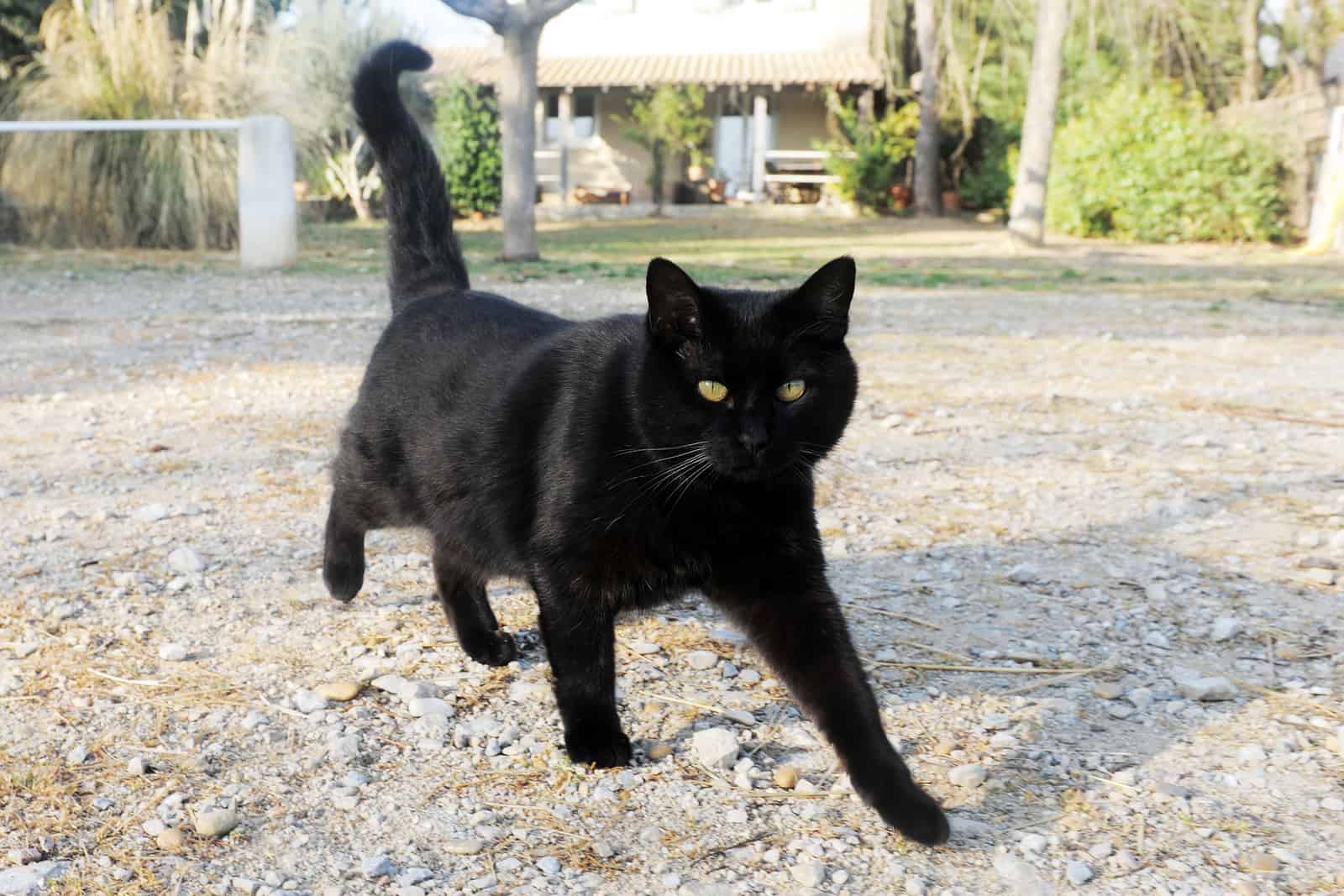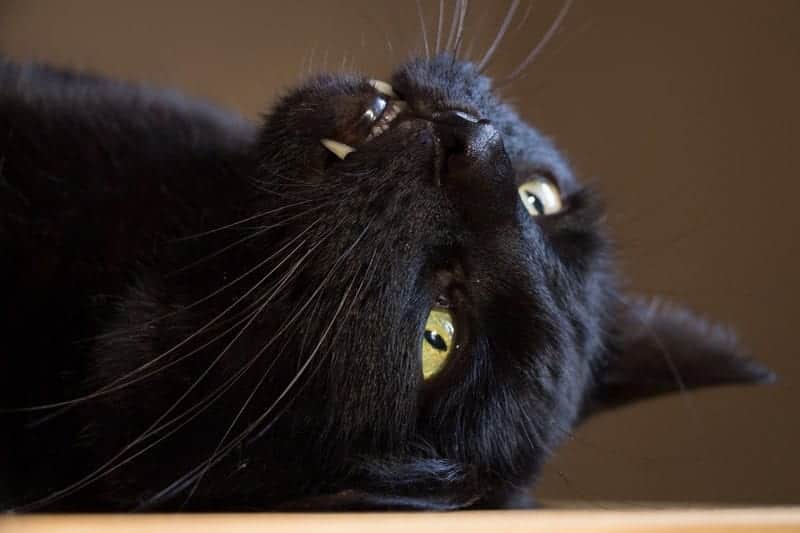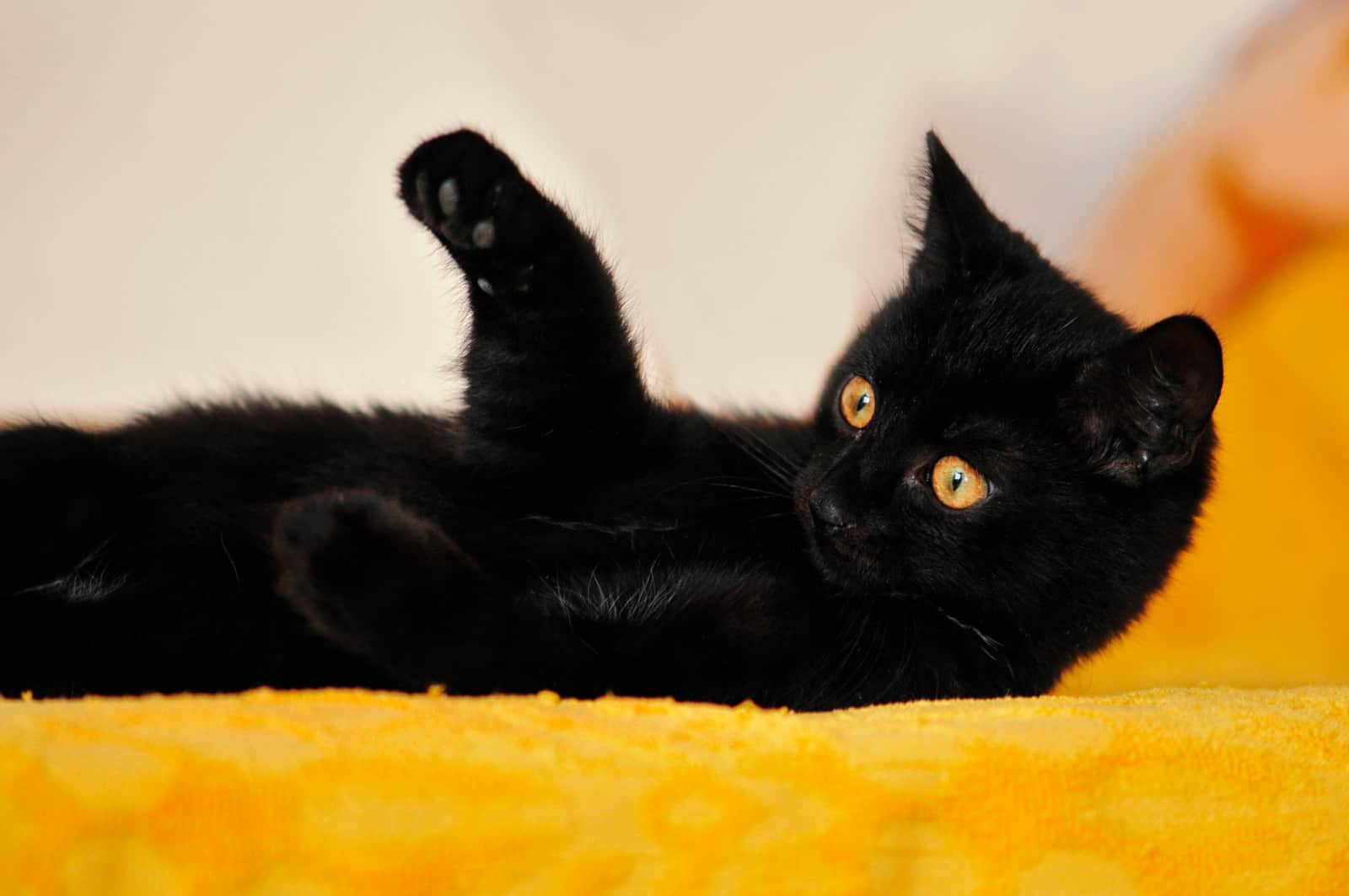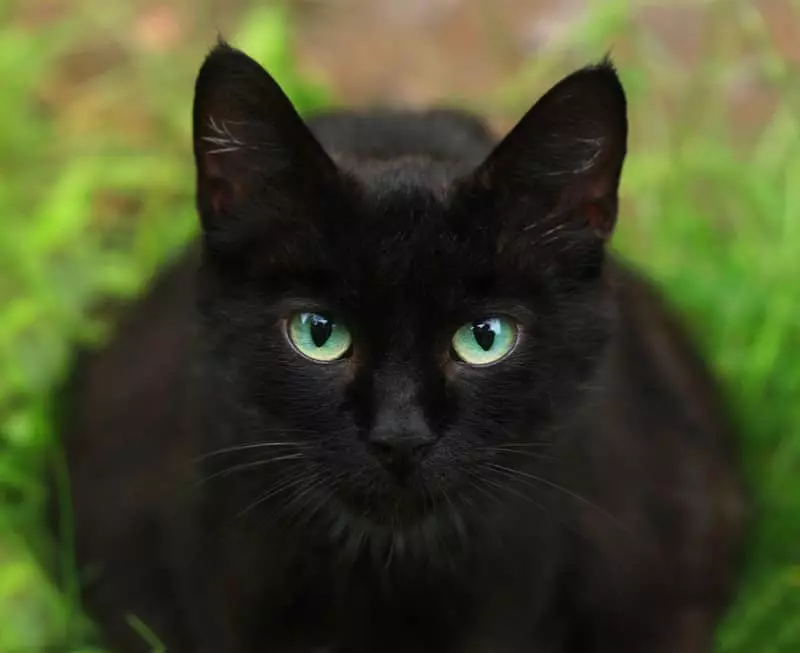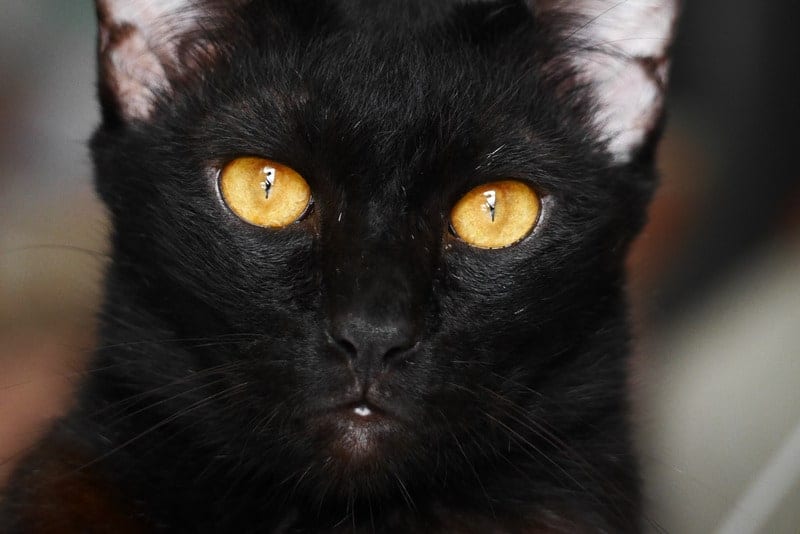When it comes to black cats, it seems that they’ve been unfairly judged for centuries. For those of us who deeply care about cats, we’d never consider them to be anything but special. In the United States, it seems that black cats have been synonymous with bad luck for a great number of years. But have you ever wondered why it is that people have been foolishly led to believe that black cats are bad luck? Here I’ll uncover for you the reason why this myth came to form. And, I’ll also share with you some countries across the globe who instead see these kitties as symbols of good luck!
Here are some theories as to why people have said black cats are bad luck…
The Middle Ages instilled the great fear of the black cat
In the Middle Ages before the Black Death of 1348 CE, the main purpose of cats was to kill mice. It was a relationship built on mutual understanding that the cats kept rodents away so their presence was generally accepted. But as death spread rampantly in Europe due to the Bubonic Plague, cats became intensely feared and almost all were exterminated. Thankfully, not all those who lived during the medieval times hated cats. In fact, nuns were known to keep these cats as pets. And many medieval Islamic cultures had a soft spot in their hearts for cats as well. But black cats didn’t have it so easy.
Not long after this time, many religious affiliates began to believe that black cats were associated with the Devil. The thought was that these cats were somehow related to the devil, and many religious people of this time feared them with passion. By the 16th century, the omens surrounding black cats were common in many cultures. Italians during this time believed that if a person fell in and a black cat were to lay on their bed, surely they would die. And the Normans and Germanic people believed that if you were to see a black cat, your days were quickly numbered.
Fear makes people do crazy things, as we know, and it took several centuries for people to see the beauty in black cats and to appreciate and love them. After all, a black cat is no different than any other cat. But during these times, superstitions reigned over logic and reasoning.
Witchy kitties
In colonial Massachusetts between February 1692 and May 1693, the Salem witch trials instilled fear in the hearts of many. And the literal witch hunt during this time wasn’t exclusive to suspected human witches. Animals were also accused of witchcraft during this time. Villagers who were fearful of these witches believed that black cats were familiars, and that they would help do the bidding of these witches. These feline familiars were thought to be supernatural entities that assisted with the practice of magic. Some villagers even went as far as to say that the black cats were possessed, and shape-shifters who could transform into witches. Due to this intense terror and speculation of the God-fearing Puritans, many black cats were executed during the Salem witch trials.

In present day, black cats are often the poster child for all things Halloween. Should you have a black cat in your life, it’s imperative that you keep them indoors on Halloween night to keep them safe. There are still cruel hearted individuals out there who will try and harm black cats—and this is especially true on Halloween. And because of this reason, many shelters will withhold adopting out black cats that come into their care until after the Halloween season ends.
Careful, a black cat just crossed your path!
Some people who are superstitious still foolishly believe that if a black cat crosses your path, this will bring you bad luck. This strange myth came to form courtesy of European folklore. According to ancient legend, it is believed that if a black cat crosses in front of your path, then this is an omen of misfortune—and maybe even death. And some simply view it as a sign of bad luck and will not move forward to the path which has been crossed by the black cat. Obviously this logic is silly and holds no truth. If a black cat crosses your path, they are simply going from point A to point B and you should maybe try to befriend them and treat them with kindness.
Black cats are actually not less adoptable
Many think that black cats are less adoptable, but such is not actually the case. When it comes to coat coloring, there are simply more black cats when compared to other cats. It is true that black cats can sometimes be difficult to photograph, so this can affect their likeliness of being adopted strictly in terms of that. Thankfully, cat lovers everywhere have a soft spot in their hearts for these beautiful cats. And more so, they are quick to open their hearts and homes for those in need. So, perhaps, their stigma of bad luck helps them to instantly win the hearts of potential adopters.
Have you ever wondered why some black cats start to “rust” and their coat transforms into a ruddy hue? Find out the answer here.
Across the globe, these mini panthers are symbols of good luck
—In Japanese culture, women who own a black cat are considered to be more attractive to their male counterparts. It’s also said that if a black cat crosses your path, this is considered to be good luck in Japan. Some Japanese people will even go as far as to tell the cat “konichiwa” as they pass by!
—Back in olden times, pirates and sailors considered them to be good luck and would often bring them onboard before setting sail on the high seas
—Stage performers consider black cats to be synonymous with good luck, especially on opening night of a play. Their belief is that if a black finds its way into your audience during this time, your show will have a long and prosperous run.
—In Chinese culture, it is thought that black cats are believed to ward off evil. And due in part to their “good energy” as believed by Feng shui enthusiasts, these dark felines possess the ability to “frighten away demons, evil energy, and stalkers.”
—Freya, the goddess of love, fertility and beauty in Norse mythology was said to have driven a chariot that was pulled by two black cats. Farmers would leave bowls of milk for the cats to win the favor of the powerful goddess, and in return, she’d bless their fields with a bountiful harvest.
—The French have long since believed that black cats literally pave the way to wealth. Long ago, the French peasants had a belief that if a black cat were to appear at a crossroads where five roads intersect, following this lucky black cat would lead them to treasure. In southern France specifically, black cats were once referred to as “matagots”—meaning magician cats—and the people would give these cats the first mouthful of food and drink at every meal, because they believed it would repay them with a solid gold coin come morning.
—In Scotland, should you open your front door and a black cat be sitting on your doorstep, this is symbolic of prosperity.
—Throughout olden times, English people would gift black cats as wedding presents to wish the bride a long and happy marriage
Check out this video from the Cattitude Daily YouTube Channel all about these good luck kitties!
Did you learn anything new and interesting about our feline friends? Share this article with other cat lovers that you know so that they can learn something, too.
Want to read about some more myths about cats that simply aren’t true? Check out my article where I debunk common misconceptions about cats here on cattitudedaily.com.

